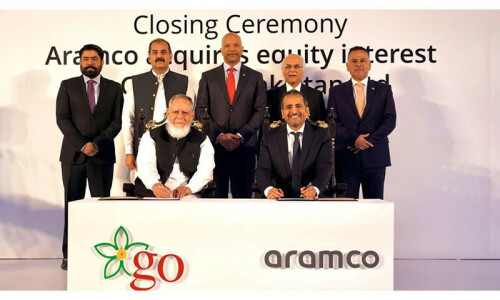LONDON: Britain’s financial regulator has decided not to undertake a review into bank cultural standards. That may have something to do with a general reduction in bank-bashing by the UK government. But it’s also because understanding why banks behave the way they do requires not a review but a new way of thinking about the problem. Here is a suggestion.
Economists talk of the “trilemma” in monetary policy. Governments, they assert, can only demand two out of three key things at once: free movement of capital, control over interest rate-setting, and a stable currency. Something breaks if they try to insist on all three. Bank culture, which might loosely be defined as what drives an institution, besides employees’ basic desire to get paid, is part of another trilemma.
The sides of the banking triangle are ethics, scale and shareholder value. It may be possible to pursue only two of these at any one time. Take HSBC. The UK bank employs 260,000 people, aims to make returns above the cost of capital, and says on its website that it wants to ensure that its employees “feel empowered to do the right thing and act with courageous integrity”.
Fine sentiments, but HSBC is arguably only achieving one of these. In recent years, the bank has been taken to task for enabling historic Swiss tax evasion and Mexican money laundering — both of which occurred after it grew to its huge size by acquisition in the last few decades. And it has persistently failed of late to make an economic profit.
Imagine if a bank were determined to be ethical and wanted to stay big. Creating value for shareholders would be much harder. A lot of the money made by banks in the past decade has come from mis-selling products consumers didn’t need, working for questionable clients, or straightforward bending or breaking of regulatory or market rules — shown by a string of rate-rigging scandals involving numerous lenders like Barclays or UBS. Without the chance to do any of this, the bank would have to cut costs by sacking even more staff.
Suppose, instead, that the bank wants to maximise shareholder value but remain ethical. This is where responsible banks like HSBC want to be. But that implies a much smaller institution, where ethically rotten parts of the empire are not too sprawling to be beyond central control. But a bank’s optimal size would have to be way smaller — the level of a large hedge fund, or an old-style investment bank partnership where managers’ own wealth is bound up in the business.
There’s one final option, which is to maximise profit, grow as big as you please, and just accept that the resulting corporate culture is amoral. This is the implied default option of large firms. It is why all but a few companies’ value statements seem like misleading guff, and why regulators like Britain’s Financial Conduct Authority think narrowly focusing on “culture” is not a good use of their time.
Published in Dawn, January 8th, 2016














































Dear visitor, the comments section is undergoing an overhaul and will return soon.